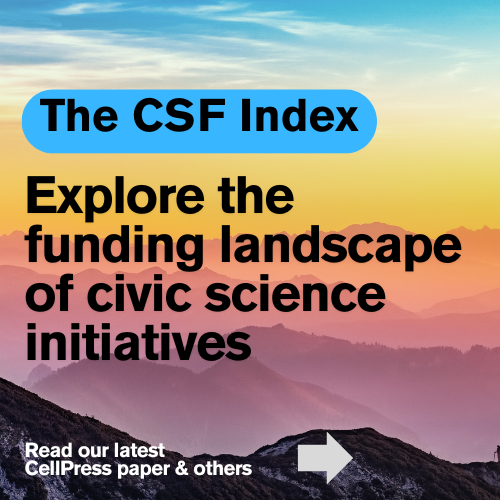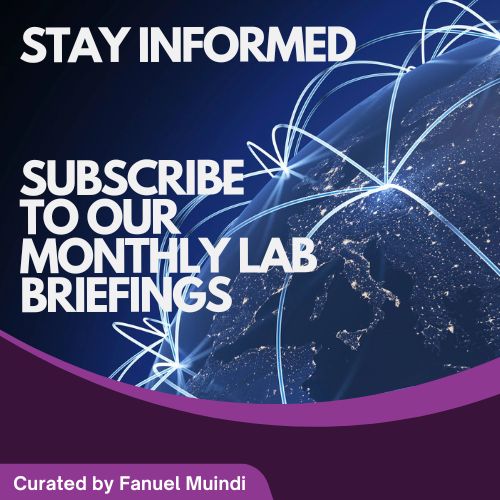CSO - Stories in Science
Finally Found My Lowest-Hanging Fruit
Liz Specht: “I didn’t want to discover something fundamentally brand new if it meant that my work wouldn’t create tangible change in the world for another fifty years. The greatest thrill, for me, is to make something that works, and works today.”

Liz Specht
[su_boxbox title=”About”]As the Associate Director of Science & Technology at nonprofit organization The Good Food Institute, Dr. Liz Specht, Ph.D. analyzes areas of technological need within plant-based and cell-based meat innovation, forecasts future growth bottlenecks, and catalyzes research to proactively address these needs and bottlenecks. She also supports startups and established industry leaders who are moving the field forward. Liz has a bachelor’s degree in chemical and bio-molecular engineering from Johns Hopkins University, a doctorate in biological sciences from the University of California San Diego, and postdoctoral research experience from the University of Colorado Boulder. Liz is a Community Fellow with CU Boulder’s Sustainability Innovation Lab and a Guest Lecturer for Singularity University. She has a decade of academic research experience in synthetic biology, recombinant protein expression, and development of genetic tools. She is a firm believer in the power of technology to enable us to meet growing food demands in a sustainable way. Learn more about Dr. Specht through her Linkedin. [/su_boxbox]
[su_boxnote note_color=”#c8c8c8″]Key Take-Aways
- Basic research and applied research are both valuable, and each scientist needs to embrace whichever path speaks to their intrinsic motivation, regardless of what their mentors or institutions seem to prize most highly.
- The most fascinating insights often arise at the intersection of diverse disciplines – if you have the chance, swap fields periodically.
- Science doesn’t occur in a vacuum: find ways to engage with industry, policy, and society to maximize your impact. [/su_boxnote]
[dropcap]I[/dropcap]t has often struck me that there are two types of scientists: those for whom the most erudite, esoteric problems of basic science are the most compelling and those for whom science is a means to a pragmatic end. In the former camp reside visionary minds with brilliant intellectual drive, who push forth the boundaries of human knowledge for the sheer thrill of it. Their work forms the bedrock of revolutions in understanding that allow fundamental paradigm shifts.
While I have profound admiration for those who “do science for science’s sake,” I never felt like one of them. Early on, I felt a bit ashamed to admit that I fell in love with science because of its unbridled potential to create real-world solutions for the planet and all of its earthly inhabitants. For much of my scientific career, I felt like the hallowed halls of academia didn’t shine quite as brightly on folks like me who are explicitly motivated to find the “low-hanging fruit” — opportunities for relatively straightforward technology to make a massive impact in the world. I didn’t want to discover something fundamentally brand new if it meant that my work wouldn’t create tangible change in the world for another fifty years. The greatest thrill, for me, is to make something that works, and works today.
Perhaps this was a foreseeable consequence of starting my life in chemical engineering and moving into the biological sciences for my doctoral studies. I came to view biology as a vast and extraordinary toolkit for building systems that can solve immediate, real-world problems.
Naturally, I was drawn to the emerging field of synthetic biology, which provided a harmonious domicile for my split halves — the tinkering, pragmatic engineer and the awestruck romantic in love with the complexity and versatility of biological systems. And, perhaps just as naturally, I was drawn to global health. This struck me as the ultimate low-hanging fruit, where simple biotechnology solutions could create massive social good if deployed in the right contexts. Rather than spending a whole career winnowing away on some obscure signaling pathway for a specific cancer, I felt compelled to seek a simple diagnostic tool or treatment to drastically improve outcomes for hundreds of millions in the developing world.
I felt I had won the impact lottery… for a time.
But about a year into my postdoc, I developed this gnawing feeling that global health applications might not actually be the lowest-hanging fruit. I was starting to learn about the far-ranging impacts of our food system — especially the most resource-intensive, habitat-destructive, and polluting aspects of raising animals for meat. Yet with all its promise and versatility, it wasn’t immediately apparent to me how biotechnology could address these issues. On their surface, these seemed like political, economic, and consumer education problems.
I didn’t want to discover something fundamentally brand new if it meant that my work wouldn’t create tangible change in the world for another fifty years. The greatest thrill, for me, is to make something that works, and works today.
At around the same time, I was beset by my previous doubts about academia. But industry never felt like a natural leap for me either. I yearned for the freedom to work on creative but practical solutions without industry’s implicit demand for profitability.
Luckily, a solution fell into my lap that answered both what to work on and where to do it: a new nonprofit organization using food technology to solve the problems of animal agriculture. The Good Food Institute supports companies that are commercializing plant-based and animal-cell-based meat, eggs, and dairy — products that are healthier, more sustainable, and more humane than the animal products currently dominating the market. GFI was looking for a scientist to map out the landscape of challenges while also roping in other researchers to work in these fields.
Suddenly the low-hanging fruits ahead of me weren’t even hanging: they were enormous, high-impact melons sitting right on the ground, ripe for the picking. I was giddy with excitement; I’d found my vocational home.
Today, part of my mission is finding researchers like me — idealists who thrive in creative outlets but whose motivations are also governed by the ruthless pursuit of pragmatism and impact. I want to share my good fortune by pointing them to these fields. Working at the nexus of research, innovation, industry, and policy enables me to catalyze and guide fundamental scientific inquiries, but with a laser-focus on commercial translation and real-world implementation.
The global benefits of accelerating a transition from conventional animal agriculture to safer and more sustainable solutions cannot be overstated. The fields of plant-based and cell-based meat, egg, and dairy are wide open with an abundance of research questions and startup opportunities. There is also a profound need for scientifically literate advocates for fair regulatory policies, consumer education, and government support.
“U-Pick” season has just begun for this melon field — have at it!
Metrics
Sessions
Total number of Sessions. A session is the period time a user is actively engaged with the page.
Visitors
Users that have had at least one session within the selected date range. Includes both new and returning users.
Page views
Pageviews is the total number of time the article was viewed. Repeated views are counted.
The CS Media Lab is a Boston-anchored civic science news collective with local, national and global coverage on TV, digital print, and radio through CivicSciTV, CivicSciTimes, and CivicSciRadio. Programs include Questions of the Day, Changemakers, QuickTake, Consider This Next, Stories in Science, Sai Resident Collective and more.

-
Civic Science Observer4 weeks ago
What are the objectives of the Neurotech Justice Accelerator at Mass General Brigham?
-
Civic Science Observer2 days ago
Meet the New Hampshire organization changing the way we see insects
-
Civic Science Observer2 months ago
Dear Colleagues: Now is the time to scale up public engagement with science
-
Civic Science Observer4 days ago
Dear Colleagues: Help us understand the national impacts of federal science funding cuts on early career researchers in academic laboratories























